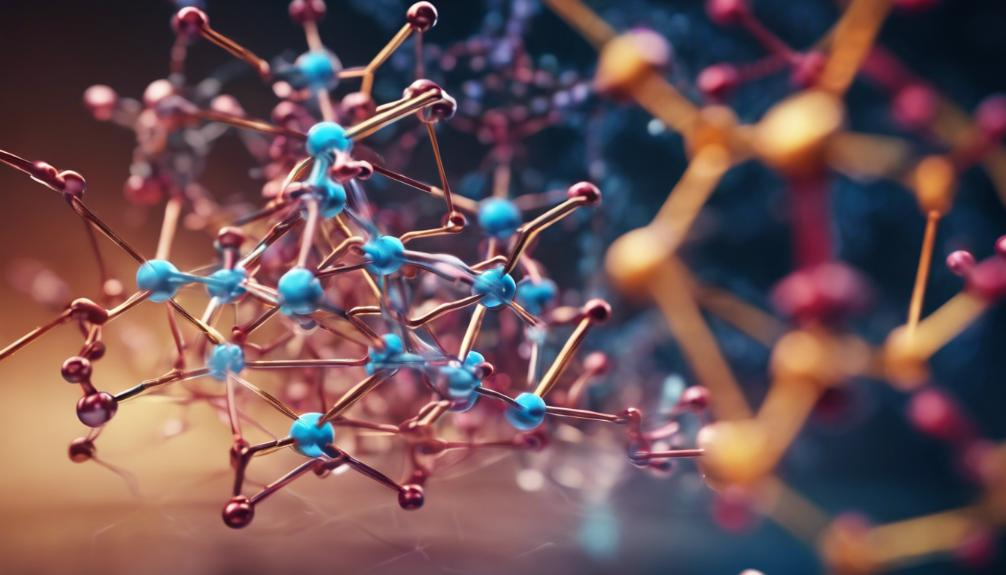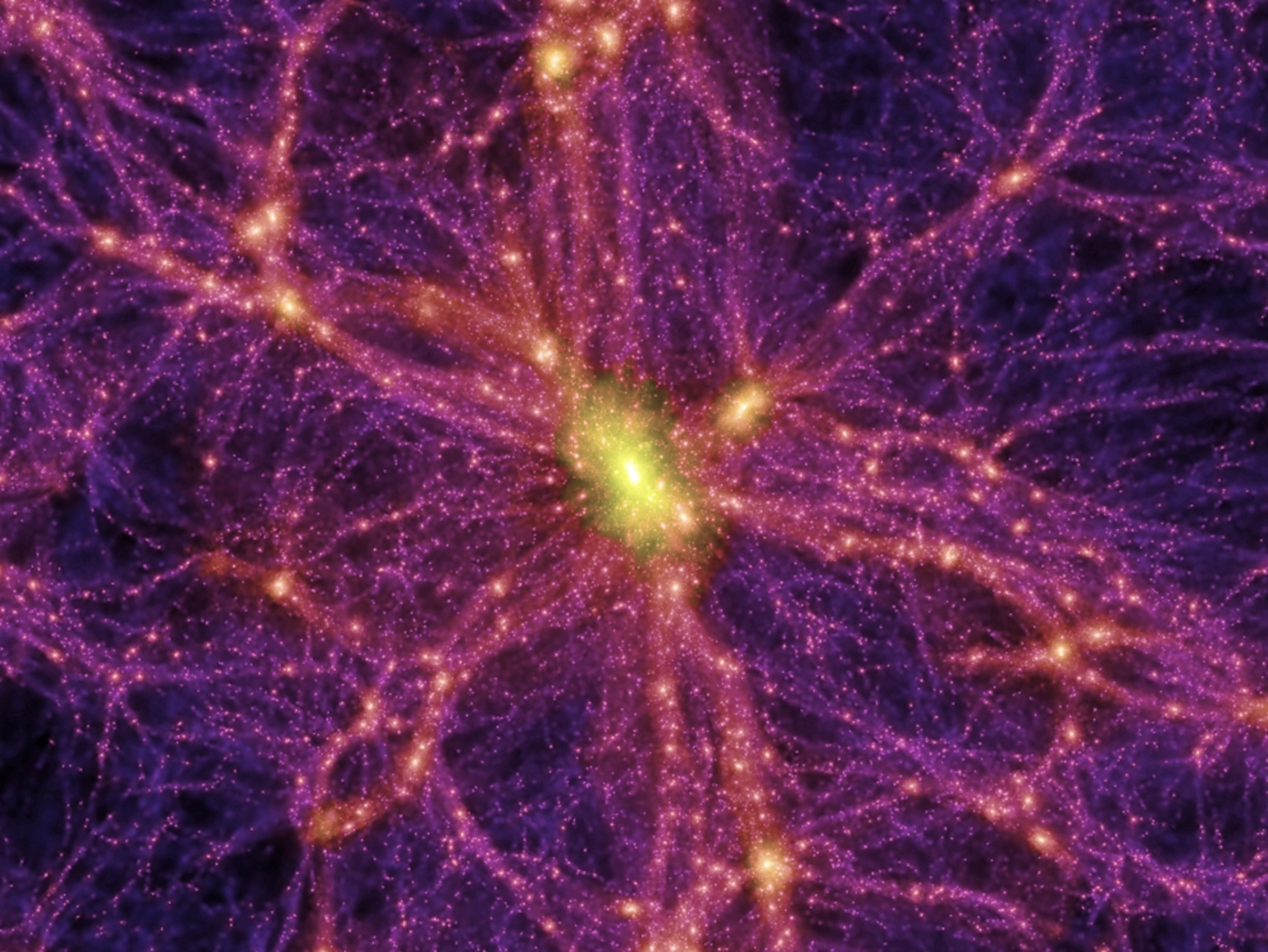Molecular quantum computing represents a remarkable advancement in the field of quantum technology, pushing the boundaries of how we understand and utilize quantum mechanics. By successfully trapping molecules to perform quantum operations, researchers are poised to unlock new levels of computational speed and efficiency that were previously thought impossible. Utilizing ultra-cold polar molecules as qubits, this innovative approach lays the groundwork for future quantum gates and complex quantum logic systems. The implications of these quantum computing advancements are immense, affecting various sectors such as medicine, finance, and scientific research. As researchers refine their methods and explore the intricacies of trapped molecules, the potential for transformative breakthroughs only grows.
The concept of molecular quantum computing, which involves harnessing the unique properties of complex molecular structures for computational purposes, is gaining traction within the scientific community. This cutting-edge approach utilizes ultra-cold polar molecules, enabling them to act as qubits that can facilitate intricate quantum operations. By employing advanced quantum gates, researchers aim to build quantum systems that operate at unprecedented speeds, leveraging the delicate dynamics of trapped molecules. As the field progresses, the synergy between quantum mechanics and molecular physics could pave the way for revolutionary advancements in technology, leading to enhanced capabilities in various domains such as cryptography and artificial intelligence.
The Significance of Trapping Molecules in Quantum Computing
The recent breakthrough in trapping molecules for quantum operations signifies a monumental step in the realm of quantum computing. Researchers have long recognized the potential of molecular quantum computing, where ultra-cold polar molecules serve as qubits, the essential building blocks of quantum information. The complexities of molecular structures previously deterred researchers from exploring this avenue, as it was believed that controlling these intricate entities would be near impossible. However, this recent achievement not only demonstrates the feasibility of such a complex operation but also opens avenues for unprecedented computational power through the manipulation of these advanced qubits.
By effectively utilizing trapped molecules, scientists can enhance the performance of quantum gates, which are crucial components in quantum circuits. The iSWAP gate demonstrated in Harvard’s experiments showcases how entangling two molecules can generate a two-qubit Bell state with remarkable precision. This capability may lead to leaps in quantum computing advancements, particularly in fields where speed and efficiency are paramount. The findings provide a solid foundation for future exploration into more complex molecular systems, as researchers aim to harness the unique potential of these qubits to realize truly transformative computational technologies.
Advanced Quantum Operations Using Ultra-Cold Polar Molecules
Ultra-cold polar molecules exhibit incredibly rich internal structures, which can be finely tuned to engage in sophisticated quantum operations. This breakthrough at Harvard, where scientists utilized optical tweezers to bring sodium-cesium (NaCs) molecules into a stable, extremely cold state, emphasizes the importance of environmental control in achieving reliable quantum states. The methodical manipulation of these ultra-cold molecules has allowed researchers to perform quantum operations that were previously thought to be impractical, paving the way for future developments in quantum algorithms and applications.
This level of precision in controlling molecular states not only helps mitigate the instability issues that have historically plagued molecular quantum computing efforts but also enhances the coherence necessary for accurate quantum operations. The ability to switch between interacting and non-interacting states allows researchers to further digitize their experimental processes, leading to better error measurement and potential improvements in system performance. Innovations stemming from this work could culminate in more robust quantum computing frameworks, capable of revolutionizing industries reliant on high-speed computations.
Challenges and Solutions in the Molecular Quantum Computing Landscape
Despite the excitement surrounding molecular quantum computing, significant challenges remain in harnessing the full potential of trapped molecules for quantum operations. For decades, researchers have grappled with issues concerning coherence and stability, primarily due to the unpredictable nature of molecular movement. The inherent fragility of molecular systems posed a significant barrier in realizing reliable quantum gates and operations. However, by leveraging advancements such as ultra-cold environments and optical tweezers, the Harvard research team has demonstrated that it is indeed possible to tame these molecular systems and use them effectively as qubits.
Continued efforts are required to refine these methods further, particularly in understanding the nuanced interactions between molecules during quantum operations. Addressing challenges related to molecular decoherence, operational errors, and system scalability will be crucial for the practical realization of molecular quantum computers. There is a growing optimism within the scientific community that as they build on this foundation, the use of trapped molecules may indeed play a pivotal role in addressing some of the most complex problems in quantum physics, pushing the boundaries of computing further than ever before.
Implications of Molecular Quantum Computers for Future Technologies
The successful implementation of trapped molecules in quantum operations not only signifies a scientific achievement but also holds profound implications for future technologies. As molecular quantum computing continues to develop, it has the potential to significantly outpace classical computing capabilities, similar to the leap we saw with the advent of traditional quantum computing. This amplification of computational power could transform industries such as artificial intelligence, cryptography, and material science, allowing for simulations and problem-solving that are currently unimaginable.
Moreover, molecular quantum computers could provide solutions to some of the most pressing challenges in various sectors, from drug discovery in medicine, where precise molecular interactions are essential, to optimization problems in logistics and supply chain management. The principles of quantum mechanics employed in these molecular systems may enable more efficient algorithms and processes, leading to innovations that enhance productivity and reduce costs. As researchers continue to explore the intricacies of molecular systems, the next generation of quantum technologies is poised to bring about unprecedented advancements that could reshape our understanding of computation.
The Future of Quantum Gates in Molecular Computing
As research advances in the field of molecular quantum computing, the role of quantum gates becomes increasingly vital. Quantum gates, which facilitate information processing in quantum computers, have already evolved significantly, with the Harvard team demonstrating the practical application of the iSWAP gate using trapped molecules. This opens doors to more sophisticated quantum algorithms and applications that leverage the unique properties of molecules compared to traditional qubit systems. The ability to perform complex operations through molecular quantum gates could lead to a new era where quantum circuits surpass the capabilities of their classical counterparts.
In the future, quantum gates derived from molecular systems may present new efficiencies and functionalities unmatched by existing technologies. The exploration of exotic molecule configurations could allow for the development of gates that can execute a greater range of operations in less time, further enhancing the processing capabilities of quantum machines. With insights gained from the novel manipulation of ultra-cold polar molecules, researchers aim to redefine the landscape of quantum computing, making molecular quantum gates a cornerstone of next-generation quantum computers.
Understanding the Mechanics of Quantum Entanglement
Quantum entanglement forms the core of what makes quantum computing so powerful, allowing for qubits to become interconnected in ways that classical bits cannot. The successful demonstration of generating a two-qubit Bell state using trapped NaCs molecules highlights the immense potential of utilizing molecular systems for quantum entanglement operations. By controlling the interactions between these molecules, researchers can forge entangled states that enable simultaneous computations on multiple levels, vastly increasing computational efficiency.
Grasping the mechanics of entanglement through molecular systems could unlock new frontiers in quantum computing research, enabling scientists to establish even more intricate quantum states. Understanding how to manipulate various entangled configurations might lead to advanced applications in communication security, where quantum entanglement ensures unparalleled encryption methods. Continuous research in this area will pave the way for harnessing the full benefits of quantum principles in practical use, potentially changing the future of technology as we know it.
The Role of Optical Tweezers in Quantum Operations
Optical tweezers have become indispensable tools in the realm of molecular quantum computing, offering researchers the ability to manipulate and stabilize molecular systems with incredible precision. The recent breakthrough achieved by the Harvard team utilized optical tweezers to trap sodium-cesium molecules, enabling them to execute quantum operations in a controlled environment. By creating a stable and ultra-cold setting, researchers effectively minimized unwanted molecular motion and maintained coherence throughout the operation, which is crucial for successful quantum computing.
The precision offered by optical tweezers allows for intricate adjustments to be made in real-time during quantum operations, paving the way for more complex experimentations that weren’t previously possible. As the field progresses, the integration of optical technologies and advanced molecular systems can lead to innovative quantum architectures that enhance both performance and reliability. This synergy between optical tweezers and molecular quantum data processing will be a key driver in realizing more powerful quantum computers in the near future.
Innovations: The Intersection of Chemistry and Quantum Computing
The melding of chemistry and quantum computing heralds a new era of scientific discovery and technological innovation. As researchers explore the internal structures of molecules and their functionality under quantum principles, they are unearthing new possibilities for the design of quantum systems. The recent Harvard study exemplifies how the combination of rigorous chemical knowledge and cutting-edge quantum physics can lead to breakthroughs in manipulating molecular systems for computational applications.
This intersection not only propels forward the field of quantum computing but also stimulates advancements in chemical research, including the modeling of intricate molecular interactions and the development of novel materials designed for quantum operations. This synergy may lead to enhanced efficiency in drug discovery, renewable energy sources, and a deeper understanding of fundamental chemical processes, ultimately shaping the future of both fields in unprecedented ways.
Potential Challenges in Scaling Molecular Quantum Computers
Despite the promising advancements in molecular quantum computing, significant challenges remain in scaling these systems to practical applications. One of the primary issues is ensuring stability and coherence in molecular systems as they are scaled up for more extensive computations. As researchers strive to create larger databases of molecular qubits, the potential for decoherence increases, causing errors and inaccuracies in quantum operations. As a result, rigorous research is necessary to develop methods that enhance the stability of larger quantum systems.
Moreover, the intricacies of managing interactions among multiple molecules necessitate meticulous control and innovative strategies in quantum gate design. Overcoming these hurdles will require collaboration among chemists, physicists, and engineers, focusing on harnessing the unique properties of molecular interactions at larger scales. A concerted effort to tackle these scaling challenges could lead to breakthroughs that significantly enhance the capabilities and applications of molecular quantum computers, laying the groundwork for a future where quantum technologies are deeply integrated into everyday life.
Frequently Asked Questions
What is molecular quantum computing and how does it differ from traditional quantum computing?
Molecular quantum computing refers to the use of trapped molecules, particularly ultra-cold polar molecules, as qubits for performing quantum operations. Unlike traditional quantum computing that relies on smaller particles like ions and superconducting circuits, molecular quantum computing leverages the complex internal structures of molecules, offering unique advantages in quantum gates and entanglement processes.
How do ultra-cold polar molecules function as qubits in molecular quantum computing?
In molecular quantum computing, ultra-cold polar molecules serve as qubits by allowing researchers to exploit their intricate internal structures. The molecules are trapped in a stable, low-temperature environment where their quantum states can be manipulated with precision. This facilitates the execution of quantum operations, like generating entangled states and implementing quantum gates.
What are quantum gates and their role in molecular quantum computing?
Quantum gates are fundamental components in quantum computing that manipulate qubits much like classical logic gates manipulate binary bits. In molecular quantum computing, quantum gates operate on the complex states of trapped molecules, enabling the creation of entangled states and allowing for more intricate quantum operations across multiple computational states.
What advancements have been made in using trapped molecules for quantum operations?
Recent advancements include the successful trapping of sodium-cesium (NaCs) molecules to perform quantum operations, marking a significant leap in molecular quantum computing. This research demonstrated the ability to create a two-qubit Bell state with 94 percent accuracy using an iSWAP gate, a crucial quantum circuit for establishing entanglement.
What are the potential advantages of molecular quantum computing over existing quantum technologies?
Molecular quantum computing holds several advantages, including the potential for enhanced computational power driven by the rich internal structures of molecules. These structures can perform complex quantum operations and enable new types of quantum gates, leading to advancements in speed and efficiency that are potentially not achievable with current systems relying on trapped ions or neutral atoms.
How does the trapping of molecules reduce instability in quantum operations?
Trapping molecules in ultra-cold environments significantly reduces their motion, allowing researchers to better control their intricate internal structures. This enhanced control mitigates issues related to instability and coherence that have historically hindered quantum operations with molecules, enabling more reliable execution of quantum computational tasks.
What challenges have researchers faced in molecular quantum computing?
Researchers have historically faced challenges in molecular quantum computing due to the fragility and erratic movements of molecules, which could disrupt coherence essential for quantum operations. However, recent breakthroughs in trapping molecules and controlling their states have begun to overcome these difficulties, paving the way for future advancements.
What role do optical tweezers play in molecular quantum computing?
Optical tweezers are essential in molecular quantum computing as they use focused lasers to manipulate and trap molecules in ultra-cold environments. This technology allows researchers to reduce molecular motion and precisely control the quantum states of trapped molecules, facilitating the execution of complex quantum operations.
How might the findings in molecular quantum computing impact future technology?
The findings in molecular quantum computing could significantly impact various fields such as medicine, science, and finance by enabling ultra-high-speed computational capabilities and novel quantum technologies. As researchers continue to explore the unique properties of trapped molecules, we may see transformative advancements in computation and data processing.
What future research directions can be expected from molecular quantum computing studies?
Future research in molecular quantum computing is likely to focus on improving the stability and accuracy of trapped molecules during quantum operations, exploring new molecule types for enhanced qubits, and developing innovative quantum algorithms that leverage molecular structures, further unlocking the potential of quantum computing.
| Key Point | Details |
|---|---|
| Breakthrough in Molecular Quantum Computing | A Harvard-led team has successfully trapped molecules, allowing for quantum operations and paving the way for molecular quantum computers. |
| Use of Ultra-cold Polar Molecules | The team utilized ultra-cold polar molecules as qubits, overcoming challenges with their complexity and instability. |
| Significance of iSWAP Gate | The scientists created an iSWAP quantum gate that successfully entangled two molecules, achieving a two-qubit Bell state. |
| Advancements in Quantum Computing Technology | This research could enhance the speed and capability of quantum computing by leveraging the unique properties of complex molecular structures. |
| Future Implications | The work signifies major strides in developing molecular quantum computers, which may revolutionize computational technology across various fields. |
Summary
Molecular quantum computing is set to revolutionize the field of computational technology. Researchers from Harvard University achieved a major milestone by successfully trapping molecules to perform quantum operations, a first in the field. Utilizing ultra-cold polar molecules as qubits, they created an iSWAP gate that entangles molecules, demonstrating the feasibility of using complex molecular structures in quantum computing. This breakthrough not only advances the speed of experimental technology but also opens new avenues for developing robust molecular quantum computers, potentially transforming sectors such as medicine, science, and finance.



